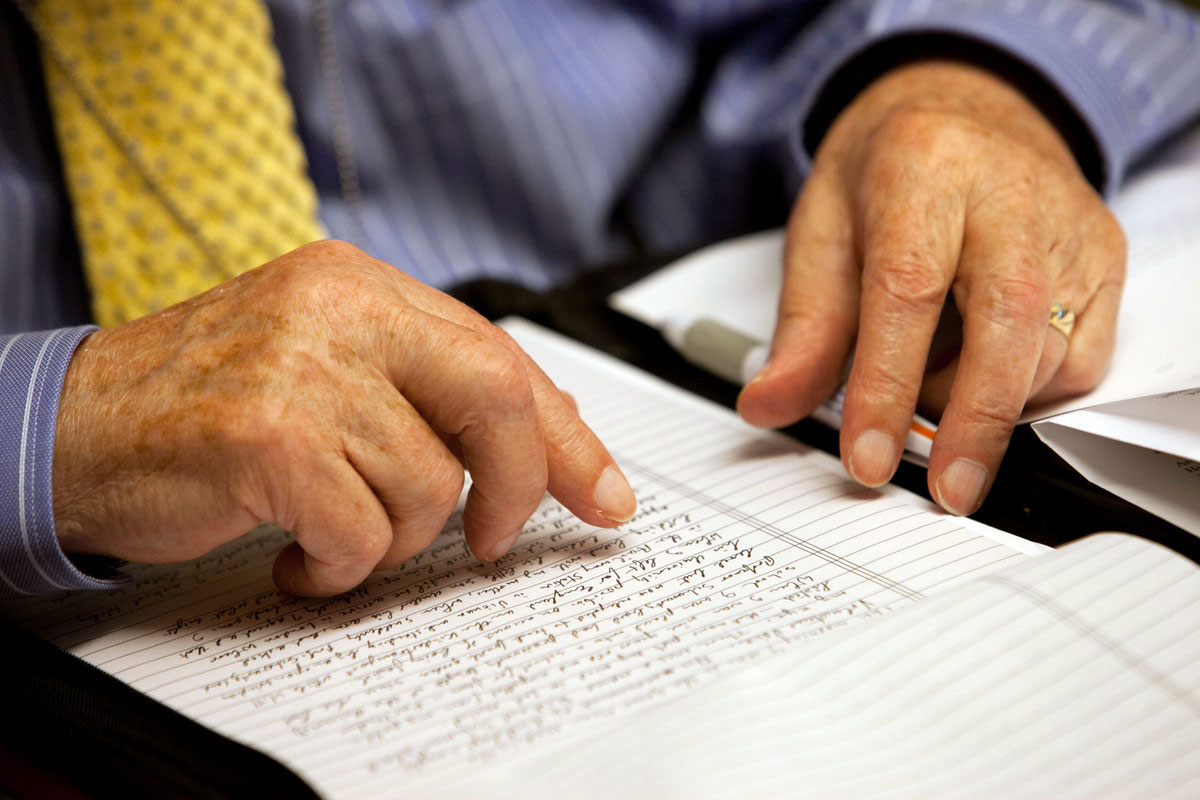Read reflections and testimonies written by Holocaust survivors in their own words.
Blog Home > police
-
Reinkensstraat 67
November 16, 2022
Reinkenstraat 67 is the address in Den Haag of an ordinary two-story home next to a fish market. It is an ordinary house on an ordinary street lined with ordinary small businesses and cafés. The address is less than a mile from the house where I was born and that my family called home until October 1942 when our family was torn apart, and we were forced to go into hiding. Reinkenstraat 67 is an address that Hannah Arendt might have called “banal,” an ordinary address where evil and mass murder assumed a personal dimension. A house I needed to see with my own two eyes, not to achieve closure, but to feel and bear witness to the depths to which the human soul can descend.
-
Decamping France
November 1, 2017
During the invasion of Morocco and Algeria in Operation Torch, undertaken by the Allied Forces on the eighth of November 1942, German troops overran the unoccupied zone of France directly. The Nazi military finally and openly occupied the whole of metropolitan France in 1942 because of this new threat from the Allied invasion of North Africa. I found the sound of the Nazi boots marching on the Canebière terrifying, perhaps because the footwear worn by the German infantry were probably Knobelbecher, what are sometimes called jackboots. The standard version of the Knobelbecher in World War II had a leather sole with hobnails and a horseshoe heel.
-
Remembering the Forgotten
November 1, 2013
For the longest time I have remembered incidents that occurred during the Holocaust, about which very few have heard. This is a story I heard about after I returned from the concentration camp in 1945. Benzion and his family were from Plosk, a small village near Polana. Until 1939, it was known as Karpatska Russ in Czechoslovakia.
-
Winter Coats
November 1, 2013
Winter of 1942 was severe. In the Drohobycz ghetto the Germans had decided to exterminate the Jews. The ways to achieve this were by starving or freezing them to death. The food rations were extremely small and there was no coal to heat the homes. People tried to avoid starvation in any way they could. Many of those who before the war worked in professions or trades had to resort to begging—after selling or bartering all their possessions for food, they had no other choice. Cold and hunger combined made people’s lives miserable. As a result, many starved to death. In the spring and summer the misery was intensified by an outbreak of typhus caused by outrageously unsanitary conditions. There were frequent Aktions during which we hid in a hole dug under the floor of our apartment, or in the lumber factory where my father worked. There were often rumors about forthcoming Aktions, which made life so very tense.
-
Hiding
November 1, 2013
The Germans entered Drohobycz June 30, 1941. Some of their first published orders deprived the Jews of their civil and legal rights. They confiscated items of value, such as fur coats and jewelry, as well as radios and guns that would help the Jews to be informed or resist the Germans. The Nazis used this loot to support the war effort. As a result there were no taxes imposed on German people during the war.
-
Paranka
September 17, 2006
It was midwinter of 1943. I was on top of a mound of hay inside a barn, trying to stay warm, when a hand removed the hay covering my upper body. I found myself staring at a young woman with a look of surprise on her face.
-
Grosse Hamburgerstrasse
September 18, 2005
“Have your husband and son report tomorrow morning to the deportee collection center on Grosse Hamburger Street!” the Gestapo officer ordered my mother. She had accompanied friends who had received their deportation orders to the collection center in the Levetzow Street synagogue, where the officer questioned her, wanting to know why she was concerned about “those Jews.”
-
Teach Love, Not Hate
September 21, 2003
One day in 1941, four men came to our house. They took my family and me to the outskirts of the town, where all the Jews from the town where gathered. We were about 500 Jews. The saddest part was that a lot of the killers were our neighbors.


